NAS and Backup Investments Grow With Distributed Teams
Quick Listen:
The shift to remote work has reshaped the American workplace, with Zoom meetings and home offices now central to how businesses operate. As teams spread across cities, states, and time zones, companies face a pressing challenge: ensuring their data remains secure, accessible, and resilient. This new reality has sparked a surge in investments in Network Attached Storage (NAS) and backup systems, technologies that are quietly becoming the backbone of distributed workforces. With cyber threats on the rise and data demands skyrocketing, businesses are turning to these solutions to safeguard their operations and empower their teams.
Struggling with fragmented IT procurement that delays projects and spikes costs? Since 2003, Eye-In Technologies has streamlined tech sourcing with 10,000+ trusted products from Lenovo, Samsung, and more. Our intuitive platform and expert-curated solutions, like digital signage and WiFi, optimize workflows for enterprises. Source smarter, cut expenses, and boost efficiency with competitive pricing. Shop Now!
The Remote Work Surge Drives NAS Market Growth
The numbers paint a vivid picture. A 2023 Gallup report revealed that 54% of U.S. workers were engaged in remote or hybrid work, a trend that continues to gain momentum. This shift has upended traditional IT strategies, as employees access systems from diverse locations home offices, co-working spaces, or even coffee shops. The old model of on-site servers struggles to keep up with this decentralized reality. NAS systems, which provide centralized, network-accessible file storage, have become a cornerstone for businesses aiming to streamline data management. According to Fortune Business Insights, the global NAS market, valued at $40.33 billion in 2024, is expected to reach $137.22 billion by 2032, growing at a compound annual growth rate (CAGR) of 16.60%. In the U.S., where remote work is entrenched, companies are investing heavily to ensure their data remains secure and their teams stay connected.
What's fueling this growth? Distributed teams create a flood of decentralized data project files, customer records, and collaborative documents that must be accessible anytime, anywhere. NAS systems centralize this data, enabling real-time collaboration without the chaos of version conflicts or scattered files. The rising threat of cyberattacks, coupled with the need for robust disaster recovery, further underscores the urgency for reliable storage and backup solutions. As businesses adapt to this new landscape, NAS is proving indispensable.
Real-World Impact: NAS in Action
Across the U.S., companies are reaping the benefits of NAS and backup systems tailored to distributed work. Take a mid-sized tech firm in California, where a hybrid workforce of developers and marketers struggled with sharing large project files. By adopting a hybrid NAS solution that integrates on-premise storage with cloud capabilities, the company reduced data retrieval times by nearly 30% and minimized downtime. Employees could access critical files seamlessly, whether working from home or the office, boosting both productivity and team morale.
In Texas, a healthcare provider faced a different hurdle: ensuring remote medical teams could securely access patient records while adhering to strict HIPAA regulations. Their solution was a cloud-integrated NAS system with encrypted access and automated backups. This approach streamlined workflows and ensured compliance, allowing doctors and nurses to focus on patient care without worrying about data security. Similarly, a New York-based e-commerce startup turned to advanced backup systems to combat ransomware threats. When a cyberattack struck, their robust backup protocols enabled them to restore operations within hours, averting a potentially devastating financial hit.
Navigating the Challenges of Distributed Data
Despite their advantages, NAS and backup systems come with challenges. Securing data access across multiple remote locations is a complex task. Without strong safeguards such as encryption and multi-factor authentication businesses risk exposing sensitive information to breaches. An IT director I spoke with likened the challenge to “securing a building with countless entry points.” Scalability is another concern. As teams expand, data volumes grow, and an underpowered NAS system can quickly become a bottleneck. Companies must plan for future growth, investing in solutions that can scale without straining budgets.
Data recovery poses its own risks. A backup system is only effective if it can restore data swiftly and completely during a crisis, whether it's a cyberattack, hardware failure, or natural disaster. Poorly configured backups can leave businesses vulnerable, as one cybersecurity expert warned: “A backup that fails to restore is essentially useless.” To mitigate this, companies must prioritize comprehensive, regularly tested backup strategies to ensure reliability when disaster strikes.
Opportunities: The Strategic Value of NAS Investments
The rewards of NAS and backup systems far outweigh the challenges. Cost savings are a major draw. By reducing reliance on external storage services and minimizing downtime, NAS systems deliver long-term financial benefits. Mordor Intelligence forecasts the NAS market to grow from $39.60 billion in 2025 to $86.5 billion by 2030, with a CAGR of 16.90%, driven by these efficiencies. For businesses, this translates to lower operational costs and a stronger competitive edge.
Collaboration is another key advantage. NAS systems enable distributed teams to work on shared files in real time, eliminating the frustration of emailing documents or searching for the latest version. This is particularly vital for industries like media, design, and software development, where large files and tight deadlines are standard. In terms of disaster recovery, robust backup systems act as a safety net, allowing businesses to recover quickly from disruptions like server crashes, cyberattacks, or natural disasters, minimizing financial and operational losses.
For regulated industries like healthcare and finance, NAS and backup systems are critical for compliance. Laws such as HIPAA and GDPR (for U.S. firms with global clients) impose strict data security and retention requirements. A well-implemented NAS system ensures businesses meet these standards, avoiding costly fines and reputational damage. As one IT consultant noted, “Compliance isn't just a box to check it's a strategic advantage that builds trust.”
A Resilient Future for Distributed Work
As remote work continues to redefine how America operates, the role of NAS and backup systems will only grow. A Gartner report projects the U.S. NAS market to expand at a CAGR of 9% through 2028, fueled by the ongoing shift to distributed teams. “The modern workplace is flexible, but it's also data-driven,” said a chief information officer at a prominent tech firm. “Investing in NAS and backups isn't just about protecting data it's about enabling teams to thrive, no matter where they're located.”
For companies aiming to stay ahead, the path forward is clear: reassess data management strategies now. Scalable, secure solutions like NAS and robust backup systems are no longer optional they're essential for navigating the complexities of distributed work. As businesses face the challenges and opportunities of this new era, these technologies will serve as the foundation for a resilient, connected, and future-ready operation. By investing wisely, companies can not only protect their data but also empower their teams to drive innovation and growth in an increasingly decentralized world.
Frequently Asked Questions
Why are companies investing more in NAS systems for remote work?
The shift to remote and hybrid work has created a surge in NAS investments because distributed teams need centralized, accessible data storage. With 54% of U.S. workers now in remote or hybrid roles, companies require NAS systems to enable real-time collaboration, reduce data retrieval times, and ensure teams can access critical files from anywhere. The global NAS market is expected to grow from $40.33 billion in 2024 to $137.22 billion by 2032, reflecting this urgent business need.
What are the main challenges of implementing NAS and backup systems for distributed teams?
The primary challenges include securing data access across multiple remote locations, ensuring scalability as teams grow, and maintaining reliable data recovery capabilities. Companies must implement strong safeguards like encryption and multi-factor authentication to protect sensitive information, while also planning for future growth to avoid bottlenecks. Additionally, backup systems must be regularly tested to ensure they can restore data quickly during crises like cyberattacks or hardware failures.
How do NAS and backup systems help with regulatory compliance for remote businesses?
NAS and backup systems are critical for meeting regulatory requirements like HIPAA and GDPR, especially for healthcare and finance companies with distributed teams. These systems provide the secure data storage, encrypted access, and automated backup capabilities needed to comply with strict data security and retention laws. Proper implementation helps businesses avoid costly fines and reputational damage while building customer trust through demonstrated data protection.
Disclaimer: The above helpful resources content contains personal opinions and experiences. The information provided is for general knowledge and does not constitute professional advice.
You may also be interested in: Software – Eye-In Technologies
Struggling with fragmented IT procurement that delays projects and spikes costs? Since 2003, Eye-In Technologies has streamlined tech sourcing with 10,000+ trusted products from Lenovo, Samsung, and more. Our intuitive platform and expert-curated solutions, like digital signage and WiFi, optimize workflows for enterprises. Source smarter, cut expenses, and boost efficiency with competitive pricing. Shop Now!
Powered by flareAI.co





